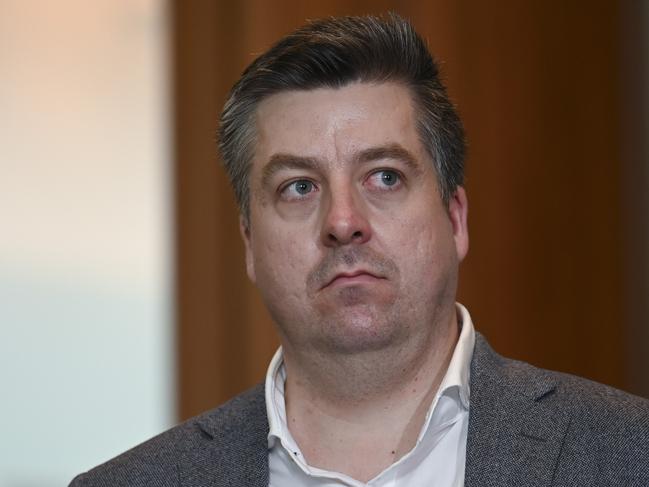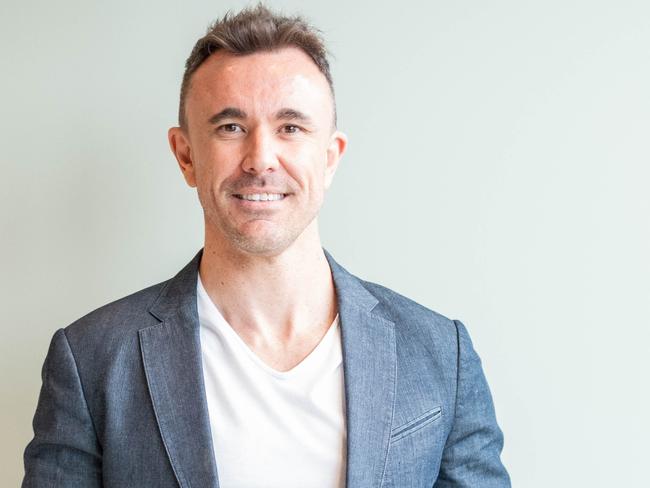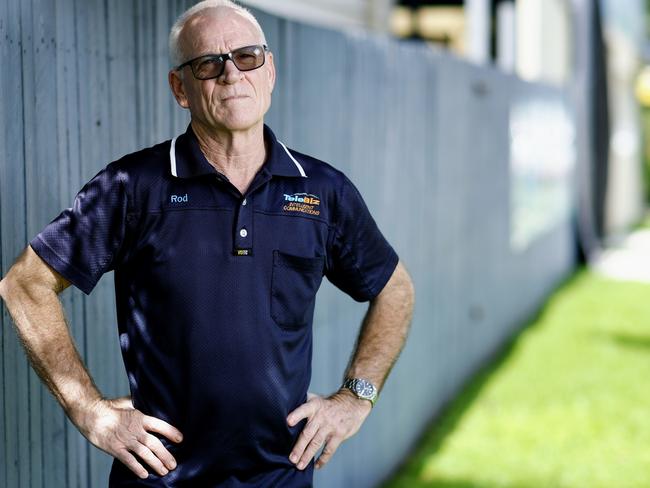How Facebook, social media scams are costing Aussie businesses millions
Rod Harris estimates he lost more than $7.5m in business after fake reviews on Facebook, prompting him to post a big reward to find the perpetrator.
Social
Don't miss out on the headlines from Social. Followed categories will be added to My News.
Exclusive: Australians lost $95 million a year to social media scams last year, with small business owners hit by fraudsters dudded on average $50,000 and now facing crippling hikes in cyber insurance.
Social media sites such as Meta’s Facebook and Instagram are awash with scammers, fake accounts and phony reviews with the Council of Small Business Organisations Australia (COSBOA) warning it was tougher than ever for small enterprises who are “fighting fire on all sides”.
“Scams are a real and present danger and a really critical threat to small businesses and their confidence,” COSBOA chief executive Luke Achterstraat said.
“If it occurs the damage can be quite devastating and have a lasting impact for years.”

Typical scams include fraudsters hacking into Facebook business accounts and using the associated credit card to advertise their own goods, with some racking up fees of up to $10,000 a day.
Tricks also include setting up spoof Facebook pages or ads impersonating real retailers, to deceive or defraud customers, leading to loss of income and brand damage for the real business.
Others are losing revenue due to fake reviews, some of which are co-ordinated by competitors.
A report from the consumer watchdog found Australians lost $95m to social media scams in 2023, up 249 per cent from 2020.
Mr Achterstraat said the average scam attack costs small businesses $50,000, which was “potentially fatal for some”.
He said the COSBOA wanted responsibility for cyber security to fall on the shoulders of the platforms such as Mark Zuckerberg’s Meta, which owns Facebook, Instagram and What’s App, rather than on businesses.

One Australian company that helps remove sham reviews from online sites said platforms needed to do more because it was like “the wild west” out there.
Removify founder Andrew Whitford said at least 20 to 30 per cent of negative reviews reported to them were “arguably illegitimate”; some were part of a co-ordinated attack, or posted by competitors or ex employees.
“Bad reviews can happen to anyone,” Mr Whitford said. “Avoiding it is difficult. It sucks. Working quickly is the best piece of advice.”
One victim, the owner of a digital marketing agency who did not want to be identified for fear of further brand damage or loss of revenue, said his business was responsible for around 20 of his clients’ Facebook business accounts which got hacked.
Facebook locked the accounts quickly, but were unable to unlock them
to allow businesses to start advertising again. One client estimates it lost $1m.
“Dealing with them was a nightmare. Facebook needs to get their sh*t together,” the agency owner said.
“Overall it cost us about $500,000 because we lost clients, lost opportunities and we had to give a lot of free service.”

He said his annual cyber insurance has also jumped from $3,000 in 2020 to $22,000 in 2024, but it was necessary because it protected them against lawsuits.
Catriona Lowe from the Australian Competition & Consumer Commission (ACCC) said there was room “for more proactive detection” of fraud by platforms such as Meta, financial institutions and telcos.
She said there should also be mandatory codes for platforms and “consumers should be compensated for losses”.
A Meta spokesman said in the final quarter of 2023, it removed 691 million fake accounts globally, but said scammers are constantly finding new ways to deceive people.
“We use both technology, such as new machine learning techniques, and specially trained reviewers to identify and action content and accounts that violate our policies,” the spokesman said.
“We also invest in tools on our services that allow people to report scams and to warn people if they are contacted by someone they don’t know.”
Small business owners can get free cyber training at cyberwardens.com.au.
‘REPORTING TO FACEBOOK WAS HOPELESS’
Businessman Rod Harris estimates he lost more than $7.5m after he was targeted on various social media platforms by scammers and an alleged wannabe competitor who flooded the internet with fake reviews.
The founder of independent Queensland Telco company TeleBiz, estimated the online attacks on his business – and the lack of action by Facebook – not only cost him $7.5m in lost revenue, but 10,000 man hours and untold stress.
He said one fake Facebook page was set up by scammers, while another, he believes, was set up by an alleged wannabe competitor, who used it to post a slew of damaging and untrue reviews from made up profiles.

When he went to the police for help, he was told to report it to Facebook.
“Reporting on Facebook was hopeless,” Mr Harris said.
“I reported the fake Facebook page over 100 times, but nothing was ever done.”
Desperate, he then went through the process of applying for a job with Facebook, just so he was able to upload his concerns to the HR department.
That worked briefly – only for a new fake page to reappear two weeks later.
“So I put on my best suit and jumped on a plane to Sydney,” Mr Harris said.
There, he managed to get through three sets of security checks to the floor of the Australian Facebook CEO, who was unfortunately not in.
Instead, he left a dossier listing the fake pages and reviews, and they were later removed.
His battle to remove the offending pages and post from Facebook and the other platforms took three years.
Mr Harris said he was still determined to track down the perpetrator of the defamatory posts and is offering a $20,000 reward for information leading to their arrest.
“Sadly, some of our existing and many potential clients believed the fake negative posts and the resultant impact upon us financially, operationally, reputationally, and personally was horrendous,” he said.
Meta was asked for comment about Mr Harris’ case, but had not replied before deadline.
Originally published as How Facebook, social media scams are costing Aussie businesses millions
Read related topics:Cost of Living





